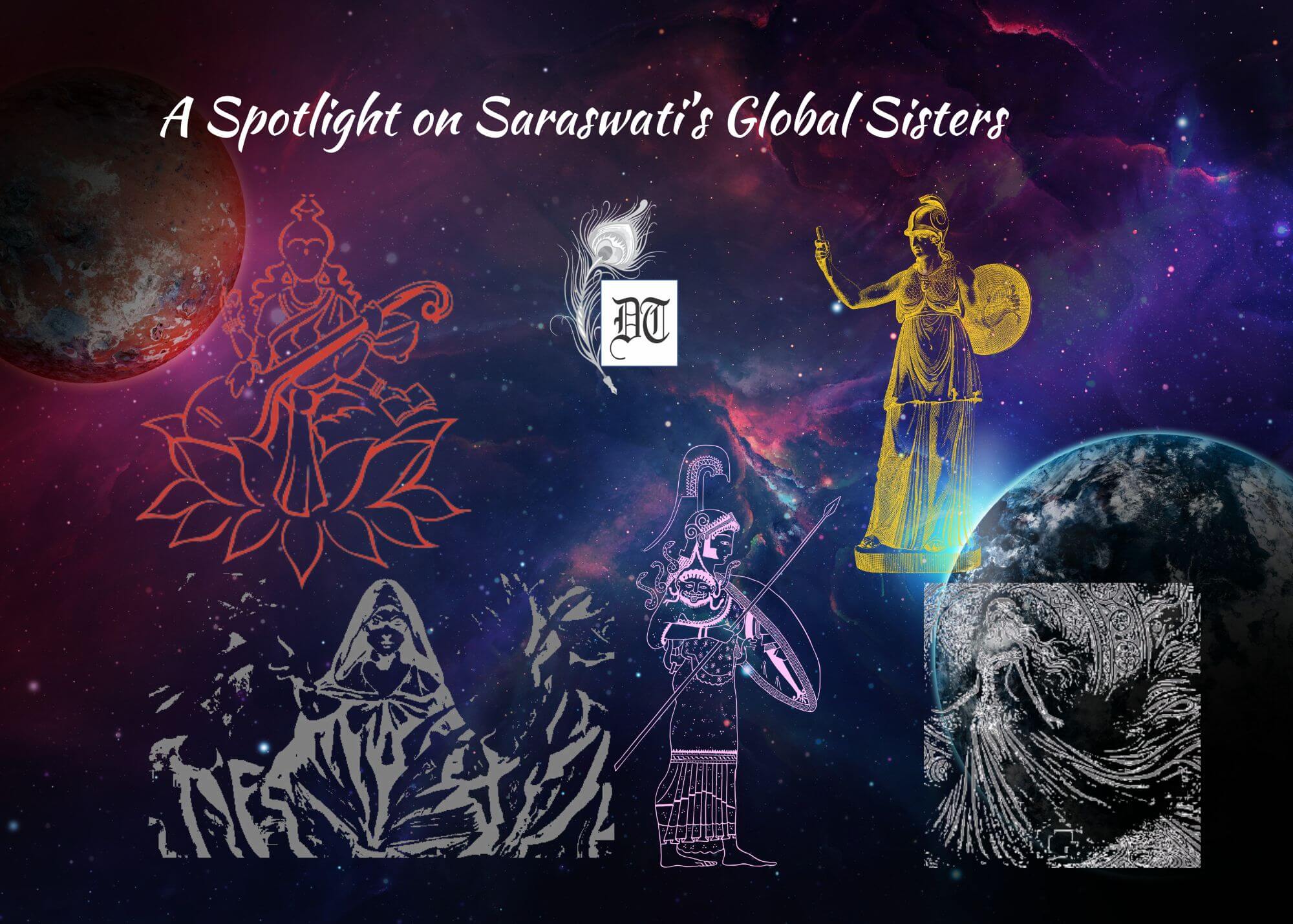Reading Time: 2 minutes
Anumita’s Special Feature for Different Truths unveils Saraswati’s global journey, showing how Vasant Panchami transcends borders. From Hindus to Southeast Asia, the celebration resonates with the universal power of learning, wisdom, and growth.

“Saraswati Mahabhage Vidye Kamalalochane Vishwaroope Vishaalaakshi Vidyam dehi namosthuthe” (Goddess Saraswati, the lotus-eyed auspicious goddess of knowledge who embodies the universe's wisdom in her large eyes, bless me and accept my salutations.)
This is the prayer on most Hindu lips on the day of Vasant Panchami, the fifth day of the waxing lunar day in the Hindu month of Magh or Falgun. Saraswati Puja, the worship of the goddess of learning and wisdom, is revered by Hindus all over the world, during which devotees ask for her blessing for learning, wisdom, and knowledge.
Many countries in Southeast Asia worship Saraswati in similar and different forms. The depiction of a fair goddess sitting on a pink lotus, adorned in a saree or similar drapes, is the common icon. She is seen playing the veena and being flanged by a white swan in numerous pictures, paintings, and sculptures throughout countries like Thailand, Cambodia, Vietnam, Sri Lanka, Myanmar, Indonesia, and Nepal.
The goddess of learning and wisdom has been depicted by other names in different cultures of the world, far from the eastern continent of Asia. Ancient cultures and mythologies have their goddesses of learning who are very akin to Goddess Saraswati of the East.
The goddess Athena of Greek mythology was called the goddess of wisdom and knowledge. Her advice was sought after. She was created from the head of God Zeus. A parallel to the creation of Goddess Saraswati by Lord Brahma.
Goddess Minerva is also considered the goddess of wisdom and is one of the holy triads in the Roman pantheon.
Norse mythology depicts the goddess Snotra as the goddess of wisdom and knowledge, who is the epitome of self-discipline and mindfulness. Her name appears in the Old Norse texts during the Viking age. The antiquity of this goddess goes way back in history. The Norse gods and goddesses are plentiful; therefore, Goddess Vör (Vur), meaning watchful or vigilant, is among the lesser-known goddesses of wisdom and intuitiveness.
All goddesses hold wisdom along with many other powers. The goddess Brigid of the Celtic culture was the goddess of learning and healing. Irish-Celtic people worship her in the middle of winter.
The goddesses of ancient culture reflected faith in the female power and the belief that learning and knowledge are for all, irrespective of language, culture, faith, or sex. In our modern society, division and segregation create differences. Few people have the right to decide who learns to attain wisdom and knowledge. Others are left in the dark.
Reference:
https://www.theoi.com/articles/interesting-facts-about-athena-greek-goddess-of-knowledge/
https://www.britannica.com/topic/Minerva-Roman-goddess
https://vikingr.org/norse-gods-goddesses/snotra
https://historylists.org/mythology/vor-goddess-of-norse-mythology.html
Picture design by the author















Refined and thought-provoking!